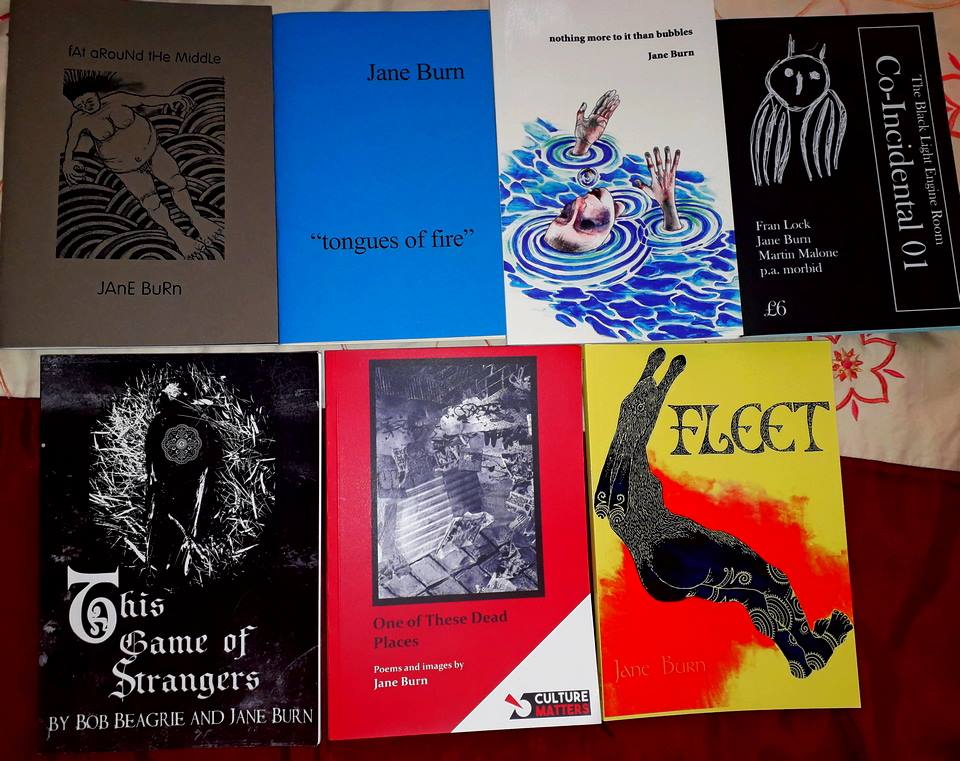
JANE BURN – POETRY AS HARD GRAFT, INSPIRATION, REACTION OR EXPERIMENT?
I interviewed poet & artist Jane Burn who won the Michael Marks Environmental Poet of the Year 2023-24 with A Thousand Miles from the Sea.
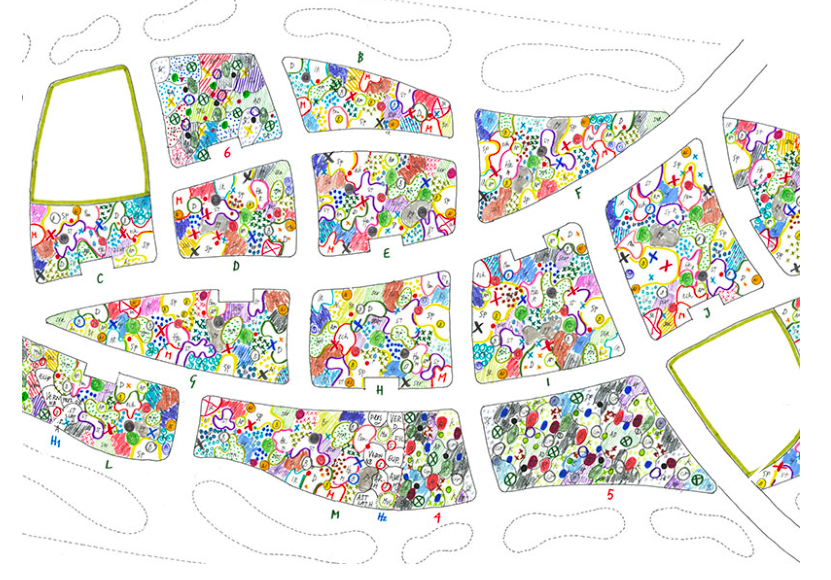
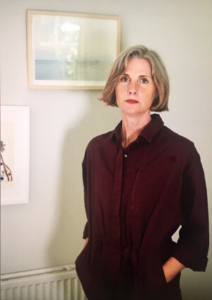
I interviewed author, editor and teacher Lulah Ellender whose first book, Elisabeth’s Lists: A Life Between the Lines was one of The Spectator’s Books of the Year and described by the Guardian as ‘hauntingly beautiful’. Having been Writer in Residence at Charleston’s Festival of the Garden, Lulah‘s second book, Grounding: Finding Home in a Garden, comes out in April 2022. Lulah lives in East Sussex with her husband, four children and various animals.
Leslie: Can you describe your book Elisabeth’s Lists: A Life Between the Lines, at its surface synoptic level but also at its deeper, more enduring & mysterious level, please.
Lulah: The book tells the story of my long-lost grandmother’s life through a book of lists she left behind. Elisabeth died when my mother was nine years old so I never knew her, and as a diplomat’s daughter and wife her nomadic, extraordinary life had been recounted to me in family stories and through photographs and objects. When my mother gave me a book of Elisabeth’s handwritten lists I became intrigued by this woman and her life, so I used the lists as a scaffold on which to piece together her story. I was incredibly lucky to have boxes of letters, photographs and Elisabeth’s diaries to flesh out her life. I was fascinated by what drove her to keep this book of lists, that travelled with her from Spain to Brazil, Paris and Lebanon, and wanted to dig deeper into the stories hidden between the lines. At the time I was researching the book my mother was diagnosed with terminal cancer (the same disease that killed Elisabeth) so the book became imbued with a strange kind of magical thinking: if I could just ‘find’ Elisabeth then somehow I could save my mother. It became a story of three generations of women, and the ties that bind us even beyond death.
Leslie: How did your earlier writings (e.g. about the house that haunted me and the Museum of Broken Relationships) and experiences prepare you for writing this book?
Lulah: I write for a living so most of my time is spent agonising over words and trying to find the best possible way to express myself or a client’s voice. Most of my paid work is copywriting, which is a brilliant discipline for keeping things concise and within strict parameters. But it’s not always completely creative, so writing articles and my books allows me more of a free rein to explore the things I’m deeply interested in. Those pieces you mentioned allowed me to write about topics I wanted to unpick, and helped me learn to work with an editor to restructure and polish my work. They were also useful preparation for putting my work out into the public realm. It is a strange conundrum about writing that you write because you want to communicate something to people, and then when you realise someone might actually read it, you feel terrified! Having articles published also helped me approach agents and editors as it brought some ‘social proof’ to my author profile. I advise my writing students to start pitching pieces to magazines and newspapers so they can build a portfolio of work before their manuscripts go out – this isn’t necessary, of course, but I do think it helps (particularly with non-fiction) if the publishing world can see that you’ve been taken seriously as a credible writer already.
Leslie: What was the research and compositional process (both practical & psychological) of Elisabeth’s Lists: A Life Between the Lines?
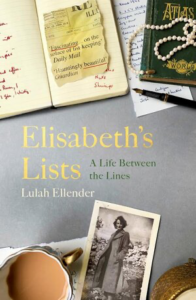 Lulah: Lengthy! It took me around five years to complete the book, but it started as a very different proposition. At first, I intended to use lists as a device to explore human experiences of love, travel, loss, food and memory. The idea was to structure a book around these themes and use lists from well-known and everyday people, alongside my grandmother’s lists, to think about the function of lists and the stories they contain. Once I got my agent and she started approaching editors, the feedback on my manuscript was that it felt like two books – one, a coffee table kind of book about famous people’s lists; and the other, a more personal family story. This was the one I really wanted to write, so after much wrangling I ditched the other lists and dived fully into Elisabeth’s world.
Lulah: Lengthy! It took me around five years to complete the book, but it started as a very different proposition. At first, I intended to use lists as a device to explore human experiences of love, travel, loss, food and memory. The idea was to structure a book around these themes and use lists from well-known and everyday people, alongside my grandmother’s lists, to think about the function of lists and the stories they contain. Once I got my agent and she started approaching editors, the feedback on my manuscript was that it felt like two books – one, a coffee table kind of book about famous people’s lists; and the other, a more personal family story. This was the one I really wanted to write, so after much wrangling I ditched the other lists and dived fully into Elisabeth’s world.
I really enjoyed researching her life, as well as trying to recreate the amazing places she visited and inhabited, and finding out some of the social history that formed a backdrop to the stories I was uncovering. I used family documents, public archives, fiction and historical texts, as well as old YouTube footage of places like Beijing in the 1930s. It sometimes felt intrusive – particularly when I was writing about my great-uncle who died by suicide and whose life was rather written out of our family’s history – and I wrestled with whether it was ethical to be exposing Elisabeth’s inner world to other people. But my mother was convinced Elisabeth would have been delighted that I was telling her story.
At one point, after three or four years of writing and no joy getting the book published, I was on the brink of giving up. Then a notebook arrived in the post and set me back on track. My mother had sent me the beginning of a novel Elisabeth had started writing just two weeks before she died as a way of distracting herself. The novel was about an ambassadress in Beirut – the exact chapter I was stuck on. I had an overpowering sense that as Elisabeth hadn’t been able to finish her story, it was down to me to carry it on. I used her words as the start of that chapter.
There were several times in the research and writing process when I felt her presence strongly. That sounds a bit ‘woowoo’ but it was a clear and real sensation – I was writing in collaboration with someone else. I felt I knew my grandmother in great depth, even though we never met. The writing process was also emotional for me because of my mother’s impending death, and it became a way to distract myself from what was going on in the ‘real’ world. I feel that in some families there is a keeper of the family stories, and that that role had just fallen to me.
Leslie: Why do people make lists, how are they helpful in ‘higher order’ mental activities and what are their limitations?
Lulah: This is such a fascinating question (well, for list nerds like me anyway)! I think lists operate on different levels. The first is a ‘memory prompt’ level where we simply need to buy the right things from the supermarket or pack essentials for a holiday. We sieve out unnecessary information and create a pared-back aide-memoire. Then there’s another function that enables us to feel a sense of control and agency, particularly when life feels chaotic or difficult. Lists also serve as a way of playing out a conversation with ourselves, working through pros and cons, or trying to excavate how we feel about something. In terms of limits, the reader obviously doesn’t know what has been left out and has to do some interpretation and filling in, which is always going to be a subjective process. By their nature lists are short, staccato, fragmentary – they can demand the reader to do some work to get to the story at their heart. And sometimes they are simply just a shopping list.
Leslie: How does your language and voice change, moving from journalism to literature?
Lulah: If you’re writing an article you need to keep the particular audience in mind. You can still use your own voice but it needs to be accessible and appropriate for those readers to engage with your work. When you are writing your own book there is generally more scope to play and develop your voice, but you are often still working with a reader or editor in mind. There are plenty of publications (in print and online) featuring work with experimental forms and structures. These can be a great place to try out something different, or that you wouldn’t want to stretch out for a whole 80,000 word book.
Leslie: Can you describe your next book, Grounding: Finding home in a garden, at its surface synoptic level but also at its deeper, more enduring & mysterious level.
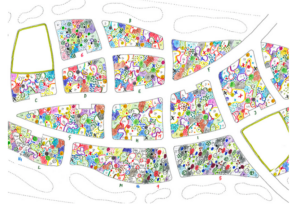
Lulah: This book explores how we can create a sense of ‘home’ and belonging through tending a garden. When I was told that our rented family home was going on the market I went into a state of inertia and despondency – as well as despairing about how we were going to afford anywhere else to live, I neglected the garden I’d nurtured for years because there didn’t seem any point if we were leaving. The book tracks my experience over a growing season when I turned back to the garden to try to root myself, and my family, in this place. It is about the constant flux of motherhood, learning to live with uncertainty and the shifting landscape of grief. It is about our connections to places and childhood gardens, and what it means to be uprooted. I also explore local gardens like Sissinghurst, Charleston, Prospect Cottage and Farley Farm and examine the different reasons we create gardens.
Leslie: Of the terms ‘lyrical essay’, ‘faction’ and ‘adapted memoir’, which suit (or don’t suit) your published writing, and why?
Lulah: In my heart I am someone who wants to defy and break out of defined genres and classifications like these, but in reality I know that publishers need to sell books and readers often like to know what they are getting. The lines between ‘fact’ and fiction are always blurred, however, and we bring our own experiences to the page whatever we are writing. Memory is slippery – I noticed in my research for Elisabeth’s Lists that different family members had very different recollections or accounts of the same event. I don’t think you can ever completely write ‘the truth’ so the non-fiction writer’s job is to get as close as possible, as authentically as they can. If a book is marketed as non-fiction but is later revealed to be mostly invented, the reader has a right to feel duped. By calling a work ‘autofiction’ many writers get round this, but I think readers know there will always be an element of embellishment or playing with timeframes in order to make the narrative flow in a compelling way. I don’t know how useful these categories are, other than in terms of marketing, but I guess I would class my books as narrative non-fiction.
Leslie: How do you experience the difference between writing fiction and non-fiction?
Lulah: I haven’t written much fiction so this is difficult to answer. I would like to write a longer piece of fiction one day but feel I need to work on the craft of this as there are skills I haven’t developed as a non-fiction writer that feel essential and different. Every writer is telling a story, so there will always be similarities in the way you approach structure, revealing plot and developing characters, but I think in non-fiction you are more constrained by the material you have in front of you. In Elisabeth’s Lists I included some fictional vignettes, where I imagined a moment in Elisabeth’s life, and really enjoyed writing these so it’s definitely something I’m keen to explore in the future.
Next week teacher Dilys Finlay talks about her school where the children’s artworks have featured in exhibitions and on London Live TV news.
ABOUT LESLIE TATE’S BOOKS:

I interviewed poet & artist Jane Burn who won the Michael Marks Environmental Poet of the Year 2023-24 with A Thousand Miles from the Sea.
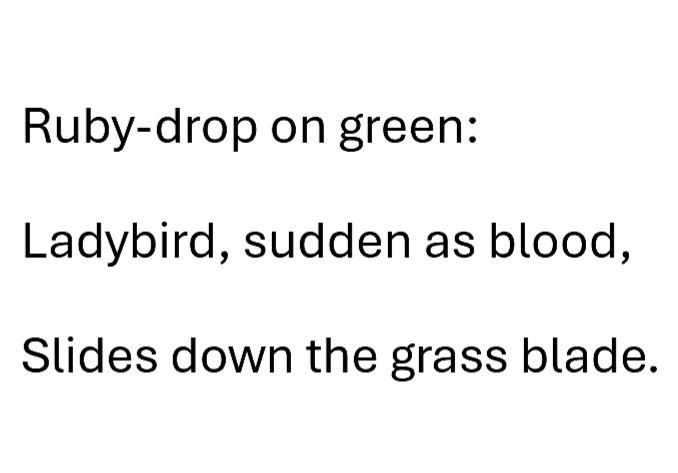
I interviewed ex-broadcaster and poet Polly Oliver about oral and visual poetry, her compositional methods, and learning the Welsh language. Polly says, “I absolutely love
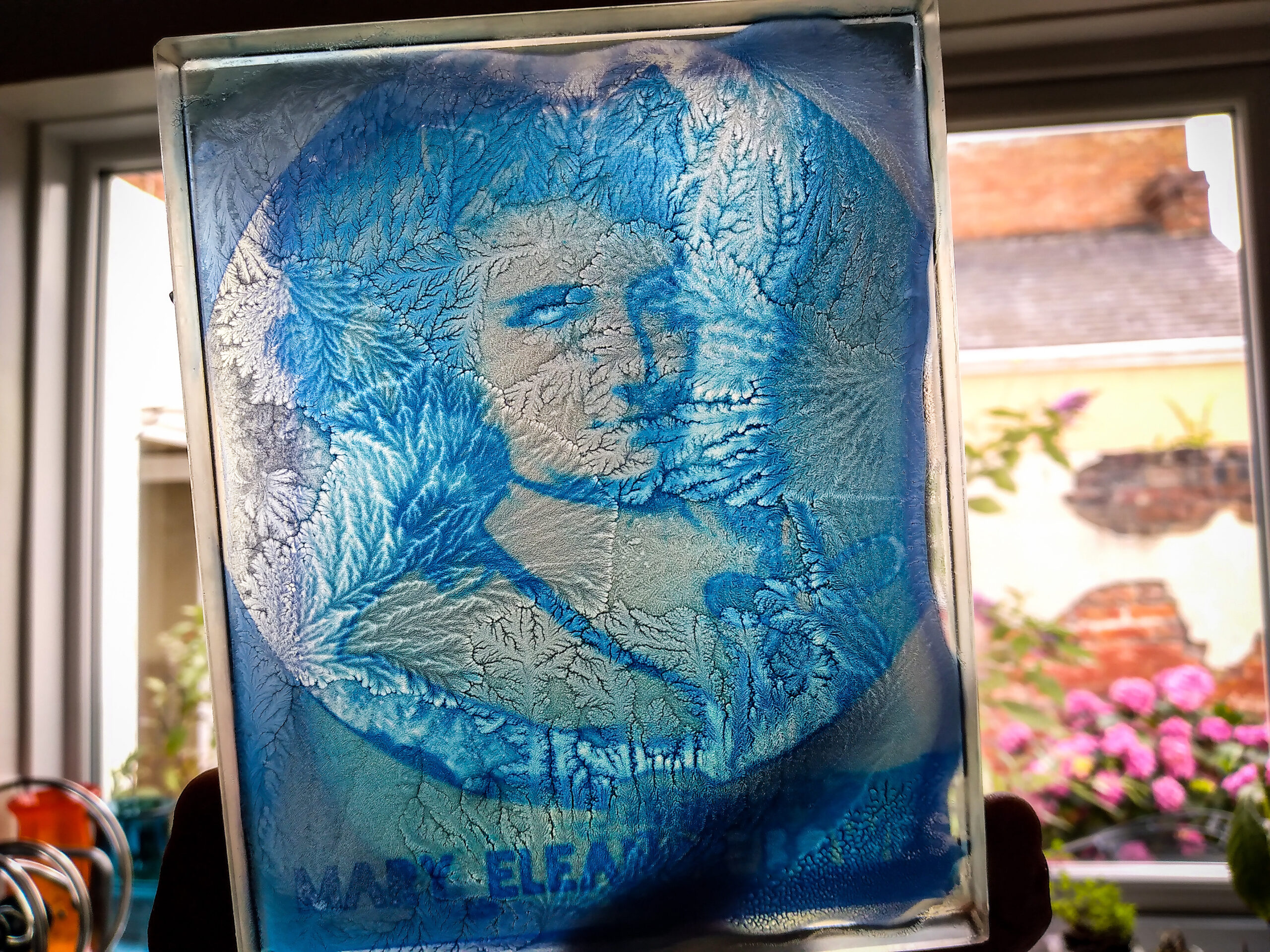
I interviewed Jo Howell who says about herself: “I’ve been a professional photographic artist since I left Uni in 2009. I am a cyanotype specialist.
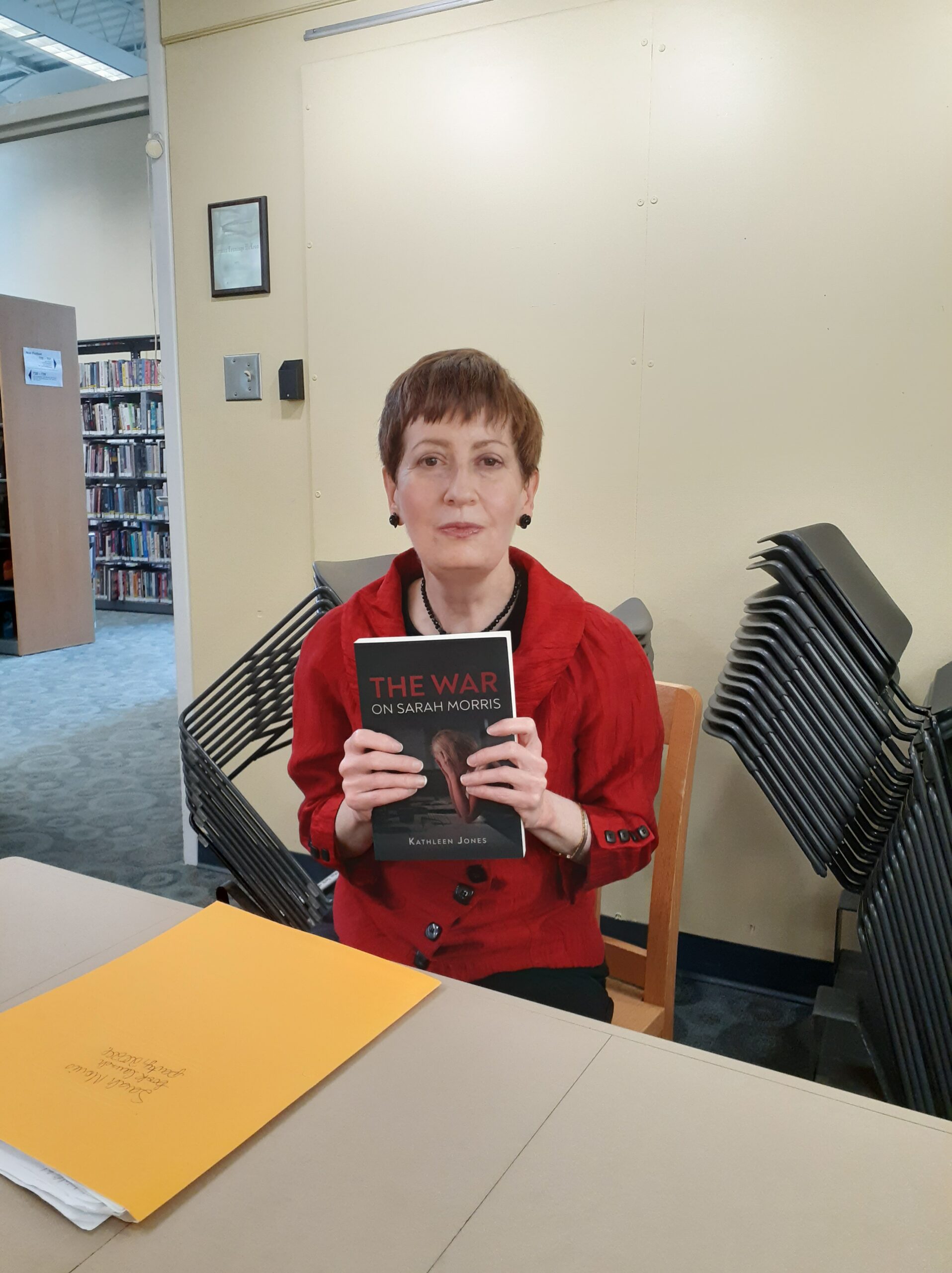
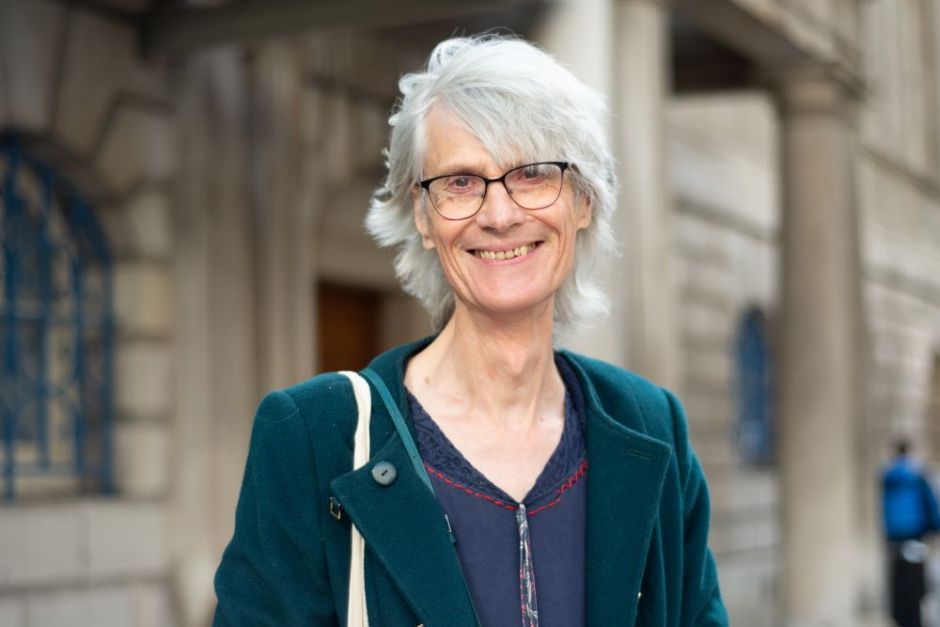
Poet Tracey Rhys, writer of Teaching a Bird to Sing and winner of the Poetry Archive’s video competition reviews Ways To Be Equally Human. Tracey,
| Cookie | Duration | Description |
|---|---|---|
| cookielawinfo-checkbox-analytics | 11 months | This cookie is set by GDPR Cookie Consent plugin. The cookie is used to store the user consent for the cookies in the category "Analytics". |
| cookielawinfo-checkbox-functional | 11 months | The cookie is set by GDPR cookie consent to record the user consent for the cookies in the category "Functional". |
| cookielawinfo-checkbox-necessary | 11 months | This cookie is set by GDPR Cookie Consent plugin. The cookies is used to store the user consent for the cookies in the category "Necessary". |
| cookielawinfo-checkbox-others | 11 months | This cookie is set by GDPR Cookie Consent plugin. The cookie is used to store the user consent for the cookies in the category "Other. |
| cookielawinfo-checkbox-performance | 11 months | This cookie is set by GDPR Cookie Consent plugin. The cookie is used to store the user consent for the cookies in the category "Performance". |
| viewed_cookie_policy | 11 months | The cookie is set by the GDPR Cookie Consent plugin and is used to store whether or not user has consented to the use of cookies. It does not store any personal data. |